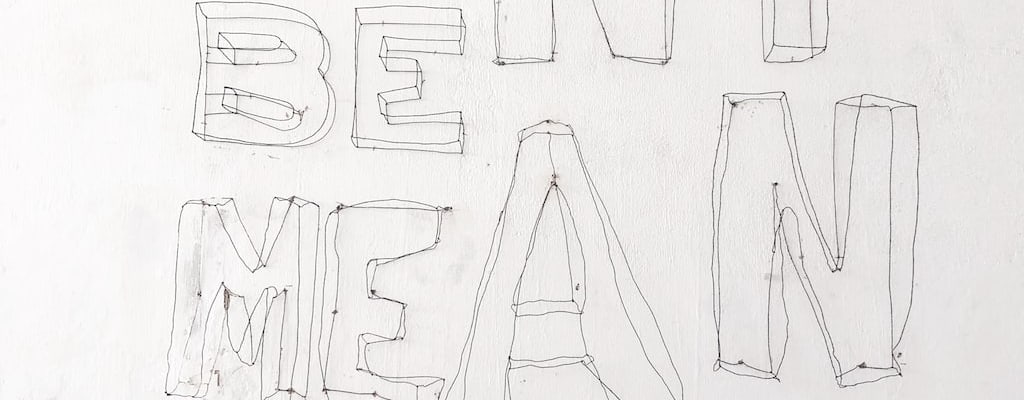throw one’s hat over the wall: Idiom Meaning and Origin
What does ‘throw one's hat over the wall’ mean?
The idiom "throw one's hat over the wall" means to commit oneself to a course of action, often into a difficult or challenging situation, in order to show determination and resolve.

Idiom Explorer
The idiom "vote with one's feet" means to express one's opinion or preference by taking action, usually by leaving or moving away from a situation or place.
The idiom "up the wall" means to become extremely frustrated, irritated, or annoyed. It originated from the idea of climbing a wall in a fit of anger or desperation. It is often used to describe a situation or a person's response to a situation that pushes them to their limits mentally or emotionally.
The idiom "turn on one's heel" means to abruptly and decisively change direction, often in a gesture of annoyance or indignation.
The idiom "turn one's coat" means to switch sides or change one's allegiance for personal gain or advantage.
The idiom "try one's hand" means to attempt or make an effort at doing something, especially when it is a skill or activity that one is not familiar with or experienced in.
The idiom "throw the baby out with the bathwater" means to discard something valuable or useful along with things that are not. It warns against the risk of making hasty or indiscriminate decisions that result in unnecessary loss.
The idiom "throw stones" means to criticize or blame someone, often without considering one's own faults or mistakes
The idiom "throw one's toys out of the pram" means to react in an excessively angry or childish manner, often in response to a minor inconvenience or disappointment.
The idiom "throw one's hat over the fence" means to commit to a course of action or to take a decisive step towards a goal, often involving a risk or challenge.
Hat Toss for Determination
The idiom "throw one's hat over the wall" has several meanings and origins, all of which contribute to its rich and varied usage. The phrase has a long history and has been widely used in the English language for centuries. While its exact origins are uncertain, it is believed to have originated in Irish culture and later gained popularity in America.
One possible explanation for the origin of this idiom is its association with a historical event involving American folklore figure Davy Crockett. According to the story, while on a hunting expedition, Crockett encountered a fence with a large field beyond it. To challenge his companions, he threw his hat over the fence, leaving him with no choice but to retrieve it. This act symbolized determination and commitment, inspiring others to follow suit and face challenges head-on. This idiom is similar to "throw one's hat over the fence," which means to take a risk and commit to a course of action.
Another potential origin of the idiom comes from Irish folklore. In Ireland, it was customary for soldiers to toss their hats over the walls of a besieged city or castle as a sign of bravery and commitment to the cause. This act demonstrated their willingness to fight and defend their comrades, even in challenging circumstances. This idiom is similar to "throw one's cap over the windmill," which means to take a risk and engage in a daring or audacious act.
Regardless of its specific origin, the idiom "throw one's hat over the wall" has come to represent a metaphorical act of commitment, determination, and willingness to face challenges head-on. It implies a sense of taking a bold and decisive action, without hesitation or second thoughts. This idiom is similar to "throw one's hat in the ring," which means to enter a competition or fight. It can also be related to "hang one's hat," which means to establish oneself or settle in a particular place.
In contemporary usage, the idiom can be applied to various situations. For example, an individual might "throw their hat over the wall" when they commit to a challenging project or endeavor, signifying their unwavering dedication. It can also be used figuratively to describe taking risks or facing obstacles with courage and determination.
Furthermore, the idiom can have a political connotation, symbolizing a politician's commitment to a particular policy or agenda. By "throwing their hat over the wall," a politician demonstrates their firm support and unwavering dedication to a cause or ideology. This idiom is similar to "throw one's hat in the ring," which means to enter a competition, particularly a political one.
The idiom "throw one's hat over the wall" is deeply rooted in history and culture, with various origins and meanings. It portrays a sense of determination, commitment, and courage, symbolizing the willingness to face challenges head-on. With its powerful imagery and metaphorical value, this idiom continues to resonate with individuals in different contexts, reminding us of the importance of taking decisive actions and fully committing to our beliefs and goals. This idiom can be related to "hang one's hat," which means to establish oneself or settle in a particular place. It can also be connected to "throw one's cap over the windmill," which means to take a risk and engage in a daring or audacious act. In addition, the idiom is similar to "throw one's hat in the ring," which means to enter a competition or fight.
Example usage
Examples:
- After careful consideration, he decided to throw his hat over the wall and pursue his dream of starting his own business.
- The team was facing a difficult challenge, but they knew they had to throw their hat over the wall and give it their all.
- She was hesitant about taking on the new project, but she finally threw her hat over the wall and took the leap.
More "Motivation" idioms



